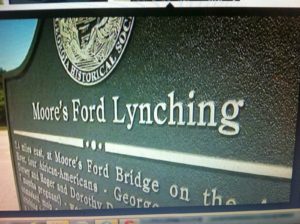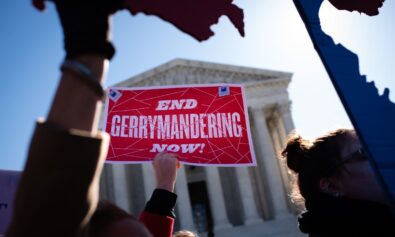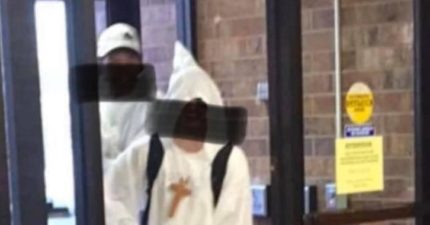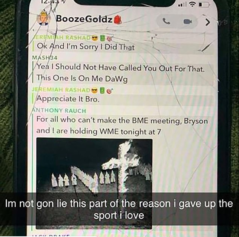
The lost or destroyed testimonies involve a three-week grand jury hearing about the July 1946 Moore’s Ford Bridge lynching of George and Mae Murray Dorsey and Dorothy and Roger Malcom. The young Black couples were dragged from a truck, tied up and shot 60 times by a white mob.
The horrific Moore’s Ford killings, widely described as America’s last mass lynching, stand out as a particularly brutal case, even in Georgia, where more lynchings were recorded between 1877 and 1950 than in any other state, according to a report by the Equal justice Initiative.
The FBI, after receiving a list of potential suspects, recently began looking into the case, only to be told by the Department of Justice that there were no transcripts.
“It is apparent that if there were such transcripts, (which the government has no reason to believe there were not),” George Peterson, an assistant U.S. attorney, wrote in the filing, “they have been either lost or destroyed at some unknown time in the past.”
NACCP board member Edward Dubose was more direct in his assessment.
“I don’t believe for one minute that these records were actually lost,” said Dubose, a former president of the NAACP’s Georgia branch. “Our efforts to bring light on this case in pursuit of justice have been thwarted at every turn. There are people who do not want the truth to come out.”
After sitting for three weeks, during which time they considered hundreds of FBI-generated documents and heard from dozens of witnesses, a grand jury of 23, including two Black members, declined to bring indictments after an inquiry ordered by president Harry Truman.
Grand jury records are by law kept secret except in extraordinary circumstances, such as the overwhelming demand for transcripts of hearings in Ferguson, Missouri, where unarmed teenager Michael Brown was shot and killed by police officer Darren Wilson.
In the Georgia case, many have claimed for decades that law enforcement officials conspired to shield well-connected white people from the area – or even members of their own ranks – who had been involved in the lynching that had infuriated Truman.
Hoover suspected that someone in the Monroe sheriff’s office may have been involved in the crimes, according to Laura Wexler’s book on the murders, Fire in a Canebrake.
At the same time, others, like civil rights attorney and future Supreme Court justice Thurgood Marshall, were wary of the FBI’s investigation.
“To my mind it is unbelievable that the FBI couldn’t find a member of that mob,” Marshall said, according to Wexler.
Files released under the Freedom of Information Act in 2007 also showed that the FBI looked into whether the attacks were sanctioned by then-Georgia governor Eugene Talmadge, a noted white supremacist and Ku Klux Klan sympathizer who had visited Monroe a day after Malcom, one of the later victims, had stabbed a white farmer.
An FBI agent told Hoover in a report that Talmadge had been heard offering immunity to anyone “taking care of Negro,” according to the files, which were obtained by the Associated Press.
He won the primary election two days later, carrying the surrounding area. A week after that, Malcom was bailed out and promptly lynched with his wife and the Dorseys.
“This was all about voting,” said Georgia state representative Tyrone Brooks, who has campaigned for justice over the lynchings for years. “Blacks were being killed trying to vote, and we had an uprising of the KKK—with the approval of Talmadge—trying to stop them.”
An 86-year-old man in Monroe told the Guardian that the FBI questioned him for 40 minutes about the possibility that his nephew, Charlie Peppers, had been involved in the lynching. Peppers denied taking part in the lynching.
Brooks, who leads an annual re-enactment of the lynching as part of a campaign for justice, said the absence of prosecutions still hurts Black residents of the area.
“There is a lot of pain, a lot of frustration and a lot of disappointment,” said Brooks. “Because it has always said—like other cases have suggested more recently—that Black lives don’t matter.”


